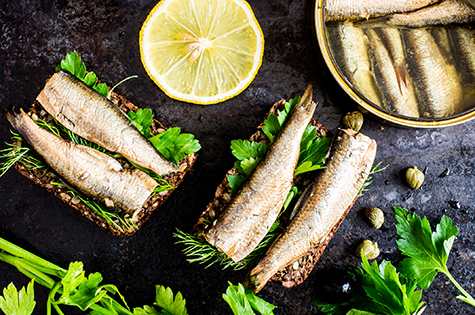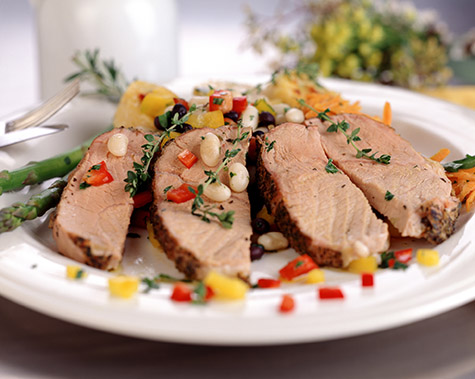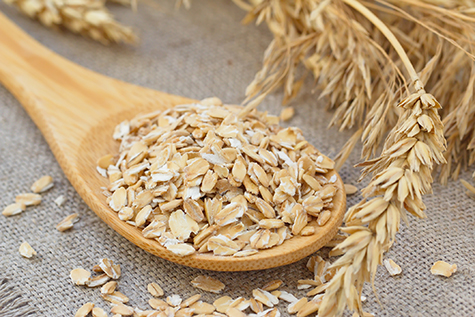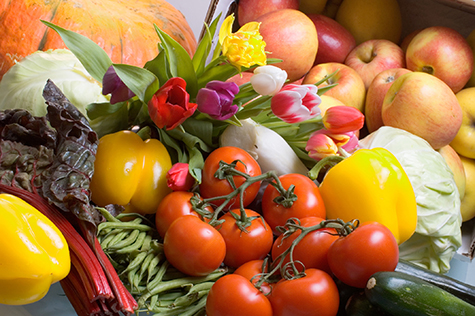Eat Like An Italian (Minus the Pizza)

Mediterranean cuisine has gotten a lot of attention for its potential impact on cardiovascular health. In fact, newer research in the Moli-Sani Study has added to the mounting evidence that certain food choices of Italians who live in the Molise region correlated with 37 percent fewer deaths during the research than those who didn’t make those choices.
“Mediterranean diet” is a catchall phrase for cuisine found in Mediterranean countries; the diet generally features lots of fish and non-red meat sources, extra-virgin olive oil and plenty of fruit and vegetables, with additional flavor coming from herbs and spices, not salt.
“There are components of the Mediterranean diet that are good for the vascular system, such as eating whole grains, low-fat dairy, skinless poultry and fish, and focusing on non-animal sources of protein,” said Dr. C. Keith Ozaki, a vascular surgeon at Brigham and Women’s Hospital/Harvard Medical School in Boston, who researches the effects of nutrition on the body’s blood vessels. Vascular surgeons are specialists who treat diseases and conditions of the circulatory system.
While researchers are still digging into the science behind these choices, from what we know now, says Dr. Ozaki, patients with vascular concerns would be wise to consider the basics of that cuisine, even if they make some personal adaptations. While there are no magic nutritional bullets, vascular surgeons want their patients to maintain a lifestyle that is associated with vascular health – and that includes eating the right foods.
Since we have veins and arteries throughout the body, vascular disease ranges from vein disorders in the legs, poor circulation in the feet, abdominal aortic ruptures and renal or carotid problems. Most common is hardening of the arteries (arteriosclerosis), which causes stroke, heart attack, peripheral arterial disease and many other circulatory problems.
Around the world, other diets similar to the Mediterranean diet have also been associated with better vascular health and reduced deaths from cardiovascular issues.
Here’s what they all have in common:
1. Less salt, more flavor. The sodium in salt contributes to high blood pressure, which is a risk factor for artery disease. High blood pressure causes blood to pump harder through the vessels, which stresses and weakens them. The American Heart Association recommends 1,500 mg of sodium per day as an ideal goal, and no more than 2,300 mg.
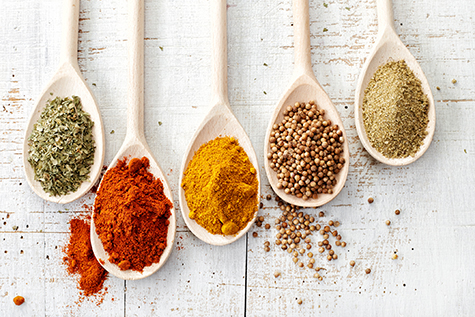
TIP – Cut back on salt; perk up flavor with herbs, spices, garlic, onions, vinegars, lemon juice and other favorite flavorings. Seasonings popular in Mediterranean cooking are basil, chilies, cloves, cumin, fennel, garlic, marjoram, oregano, pepper, rosemary, sage, savory, tarragon and thyme.
TIP 2 – Avoid pizza. As an example, one slice of meat-topped pizza from a national chain has 1,300 mg of sodium, according to the company’s website.
2. Eat salmon or mackerel. These fish are rich in omega 3 fatty acids, which inhibit plaque inside the arteries, reduce blood clots and may increase good cholesterol and lower blood pressure. The American Heart Association recommends eating fish twice a week. Other high omega 3 fish choices: cold-water varieties like tuna, trout, sardines and herring.
TIP – Fresh salmon can be pricy, but diners can save money by following the next tip.
3. If you like beef and pork, choose lean cuts, only occasionally and keep portion sizes moderate. Avoid lamb and poultry with skin. These are all high in saturated fats, which contain dietary cholesterol that can build up in the arteries. Researchers are still looking at the causes and effects of eating red meats, but until scientists have definitive answers, moderation is best.
TIP – Get protein from beans, legumes and nuts. Plant-based proteins are filling and healthful; think minestrone soup with beans or quinoa with pine nuts.
4. Eat more whole grains. Whole grains found in Mediterranean cooking include barley, oats, polenta, rice and couscous. Whole grains have soluble and insoluble fiber, which can help improve blood cholesterol levels by preventing the absorption of cholesterol in the intestines. Whole grains also are associated with a lower risk of cardiovascular diseases, obesity and type 2 diabetes.
TIP – Avoid highly refined white bread, such as that in garlic bread, and white flour pasta.
5. Make fruits and vegetables a staple. In Mediterranean cuisine, a rainbow of vegetables and fruits are used in abundance. Not only do fruits and vegetables add vitamins and fiber to the diet, a new study has found that eating three or more servings per day is associated with a significant decrease in developing peripheral artery disease (PAD) and the foods are also associated with fewer heart attacks and strokes.
TIP – Fresh or frozen fruits and vegetables are better than canned. Avoid adding extra salt or sugar for maximum benefit.
6. Use extra-virgin olive oil in place of other fats. Olive oil, which contains monounsaturated fatty acids (MUFAs), may have important health benefits. According to the Mayo Clinic, MUFAs may lower bad cholesterol and improve the function of blood vessels. They also may help with insulin and blood sugar control, which is good for diabetics.
TIP – Avoid trans fats, such as those in margarine and some commercial baked goods, as they contribute to artery disease.
In the end, said Dr. Ozaki, while eating better will improve the odds of good vascular health, diet is just one factor. Smoking is certainly detrimental to vascular health, he said, and genetics matter too.
Researchers are always finding new answers and he sympathizes with those who feel as though diet guidelines change all the time.
“Some of the things we said 10 years ago are not considered true now. And years from now, that could happen again. Our real goal is to get the right nutrition to the right patient at the right time of his or her life,” he noted, “but we are still learning how to get there. Meanwhile, I advise patients to eat a variety of nutritious foods from all food groups. Eat wisely and in moderation.”
The American Heart Association has nutrition information online. Start here: http://www.heart.org/HEARTORG/HealthyLiving/HealthyEating/Nutrition/The-American-Heart-Associations-Diet-and-Lifestyle-Recommendations_UCM_305855_Article.jsp#.WN7Jp6K1uHs
The Society for Vascular Surgery® (SVS) is a not-for-profit professional medical society, composed primarily of vascular surgeons, that seeks to advance excellence and innovation in vascular health through education, advocacy, research and public awareness.
View original content with multimedia:http://www.prnewswire.com/news-releases/eat-like-an-italian-minus-the-pizza-300492804.html

